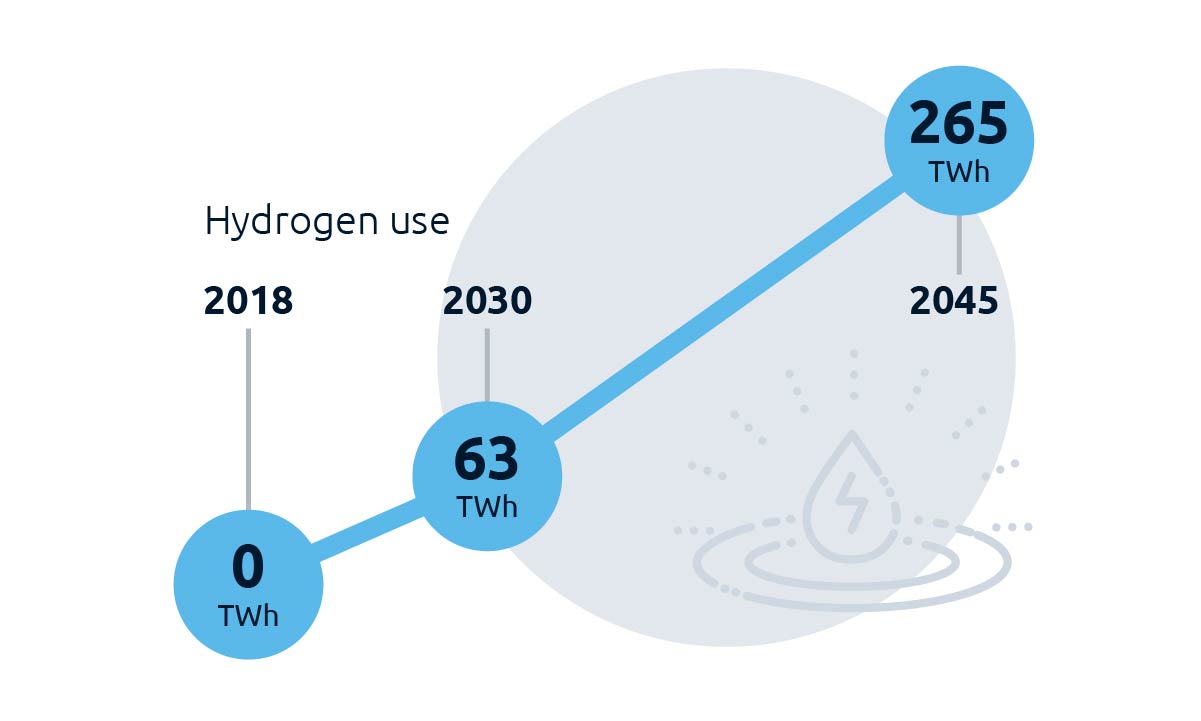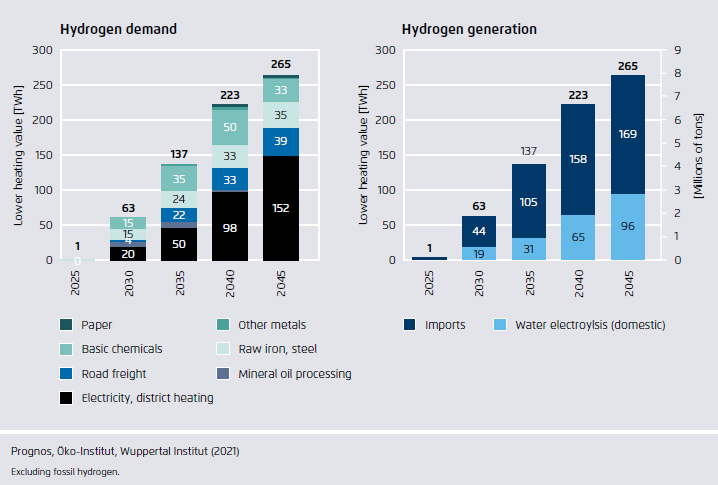Hydrogen complements the use of renewable electricity
Achieving climate neutrality, demands all fossil fuels to be replaced by efficiency gains and by renewable energies. The direct use of renewable electricity is most efficient, e.g. in electric vehicles and in heat pumps. In some areas, however, the direct use of renewable electricity is not possible, for example in production processes in the steel and chemical industries or in shipping and air transport Here hydrogen will be used directly or as hydrogen-based synthetic fuels. A large share of hydrogen will be needed for electricity production to replace fossil natural gas in power plants in times when renewable energies cannot meet demand.

Hydrogen production: A deployment strategy is needed
On the road to climate neutrality, the demand for hydrogen will grow to more than 60 TWh in 2030 and to about 265 TWh in 2045. Part of it will be produced in Germany and the rest will be imported, most likely from other European countries. In the medium term, hydrogen production should be largely based on water electrolysis with renewable electricity. For a transitional period, hydrogen from fossil natural gas can also be considered, where the resulting CO2 emissions are captured and permanently stored. At present, what is needed above all is a market introduction strategy that sets priorities and clarifies framework conditions. We need to reduce the costs of electrolysis through industrial production processes. Location issues need to be clarified and strategies for infrastructure development designed.
Steel industry as pioneer
The steel industry can become a pioneer of a hydrogen economy. Old blast furnaces can be replaced by direct reduction plants and fueled by hydrogen.
